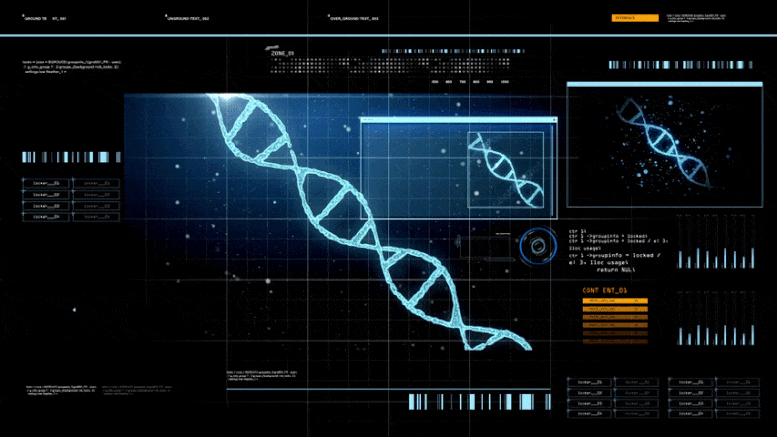Los genes “borrados” que nos hicieron humanos


Un nuevo estudio explora la importancia de la falta de información genética en el genoma humano en comparación con otros primates. Los investigadores descubrieron que los humanos han perdido alrededor de 10.000 piezas de información genética a lo largo de la historia evolutiva, lo que nos diferencia de nuestros parientes primates más cercanos, como los chimpancés. Algunos de estos fragmentos “borrados” están relacionados con funciones neuronales y cognitivas, incluidas las involucradas en la formación de células cerebrales. Estas deleciones, presentes en otros mamíferos pero ausentes en humanos, se conservaron en todos los humanos, lo que sugiere que proporcionaron una ventaja biológica. El equipo utilizó la tecnología Massively Parallel Reporter Assays (MPRA) para rastrear y medir la función de miles de cambios genéticos entre especies, lo que contribuyó a nuestra comprensión de lo que hace que los humanos sean únicos.
Investigadores de Yale y del Instituto Broad descubrieron que la pérdida de unas 10.000 piezas de información genética diferencia a los humanos de nuestros parientes primates más cercanos. Estas deleciones conservadas, asociadas con funciones cognitivas y formación de células cerebrales, sugieren una ventaja evolutiva, alterando la función de nuestros genes y contribuyendo potencialmente a nuestras características humanas únicas.
Lo que falta en el genoma humano en comparación con los genomas de otros primates puede haber sido tan crucial para el desarrollo de la humanidad como lo que se agregó durante nuestra historia evolutiva, según un nuevo estudio dirigido por investigadores de Yale y el Broad Institute of[{» attribute=»»>MIT and Harvard.
The new findings, published recently in the journal Science, fill an important gap in what is known about historical changes to the human genome. While a revolution in the capacity to collect data from genomes of different species has allowed scientists to identify additions that are specific to the human genome — such as a gene that was critical for humans to develop the ability to speak — less attention has been paid to what’s missing in the human genome.
For the new study researchers used an even deeper genomic dive into primate DNA to show that the loss of about 10,000 bits of genetic information — most as small as a few base pairs of DNA — over the course of our evolutionary history differentiate humans from chimpanzees, our closest primate relative. Some of those “deleted” pieces of genetic information are closely related to genes involved in neuronal and cognitive functions, including one associated with the formation of cells in the developing brain.
These 10,000 missing pieces of DNA — which are present in the genomes of other mammals — are common to all humans, the Yale team found.
The fact that these genetic deletions became conserved in all humans, the authors say, attests to their evolutionary importance, suggesting that they conferred some biological advantage.
“Often we think new biological functions must require new pieces of DNA, but this work shows us that deleting genetic code can result in profound consequences for traits make us unique as a species,” said Steven Reilly, an assistant professor of genetics at Yale School of Medicine and senior author of the paper.
The paper was one of several published in the journal Science from the Zoonomia Project, an international research collaboration that is cataloging the diversity in mammalian genomes by comparing DNA sequences from 240 species of mammals that exist today.
In their study, the Yale team found that some genetic sequences found in the genomes of most other mammal species, from mice to whales, vanished in humans. But rather than disrupt human biology, they say, some of these deletions created new genetic encodings that eliminated elements that would normally turn genes off.
The deletion of this genetic information, Reilly said, had an effect that was the equivalent of removing three characters — “n’t” — from the word “isn’t” to create a new word, “is.”
“[Such deletions] puede modificar ligeramente el significado de las instrucciones de cómo hacer un ser humano, ayudando a explicar nuestros cerebros más grandes y la cognición compleja», dijo.
Los investigadores utilizaron una tecnología llamada Massively Parallel Reporter Assays (MPRA), que puede rastrear y medir simultáneamente la función de miles de cambios genéticos entre especies.
«Estas herramientas tienen la capacidad de permitirnos comenzar a identificar los muchos bloques de construcción moleculares pequeños que nos hacen únicos como especie», dijo Reilly.
Referencia: «Los impactos funcionales y evolutivos de las eliminaciones específicas de humanos en elementos conservados» por James R. Xue, Ava Mackay-Smith, Kousuke Mouri, Meilin Fernandez Garcia, Michael X. Dong, Jared F. Akers, Mark Noble, Xue Li , Consorcio Zoonomía†. , Kerstin Lindblad-Toh, Elinor K. Karlsson, James P. Noonan, Terence D. Capellini, Kristen J. Brennand, Ryan Tewhey, Pardis C. Sabeti, Steven K. Reilly, Gregory Andrews, Joel C. Armstrong, Matteo Bianchi, Bruce W. Birren, Kevin R. Bredemeyer, Ana M. Breit, Matthew J. Christmas, Hiram Clawson, Joana Damas, Federica Di Palma, Mark Diekhans, Michael X. Dong, Eduardo Eizirik, Kaili Fan, Cornelia Fanter, Nicole M. Foley, Karin Forsberg-Nilsson, Carlos J. García, John Gatesy, Steven Gazal, Diane P. Genereux, Linda Goodman, Jenna Grimshaw, Michaela K. Halsey, Andrew J. Harris, Glenn Hickey, Michael Hiller, Allyson G. Hindle, Robert M. Hubley, Graham M. Hughes, Jeremy Johnson, David Juan, Irene M. Kaplow, Elinor K. Karlsson, Kathleen C. Keough, Bogdan Kirilenko, Klaus-Peter Koepfli, Jennifer M. Korstian, Amanda Kowalczyk, Sergey V. Kozyrev, Alyssa J. Lawler, Colleen Lawless, Thomas Lehmann, Danielle L. Levesque, Harris A. Lewin, Xue Li, Abigail Lind, Kerstin Lindblad-Toh, Ava Mackay-Smith, Voichita D. Marinescu, Tomas Marques-Bonet, Victor C. Mason, Jennifer RS Meadows, Wynn K. Meyer, Jill E. Moore, Lucas R. Moreira, Diana D. Moreno-Santillan, Kathleen M. Morrill, Gerard Muntané, William J. Murphy, Arcadi Navarro, Martin Nweeia, Sylvia Ortmann, Austin Osmanski, Benedict Paten, Nicole S. Paulat, Andreas R. Pfenning, BaDoi N. Phan, Katherine S. Pollard, Henry E. Pratt, David A. Ray, Steven K. Reilly, Jeb R. Rosen, Irina Ruf, Louise Ryan, Oliver A. Ryder, Pardis C. Sabeti, Daniel E. Schäffer, Aitor Serres, Beth Shapiro, Arian FA Smit, Mark Springer, Chaitanya Srinivasan, Cynthia Steiner, Jessica M. Storer, Kevin AM Sullivan , Patrick F. Sullivan, Elisabeth Sundström, Megan A. Supple, Ross Swofford, Joy-El Talbot, Emma Teeling, Jason Turner-Maier, Alejandro Valenzuela, Franziska Wagner, Ola Wallerman, Chao Wang, Juehan Wang, Zhiping Weng, Aryn P Wilder, Morgan E. Wirthlin, James R. Xue, Xiaomeng Zhang, 28 de abril de 2023, Ciencia.
DOI: 10.1126/ciencia.abn2253
James Xue del Broad Institute es el autor principal del estudio.
